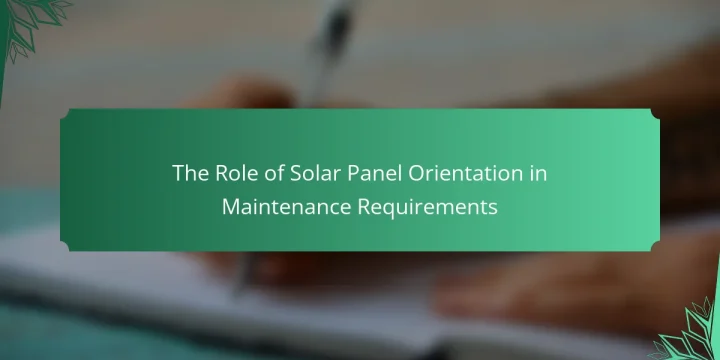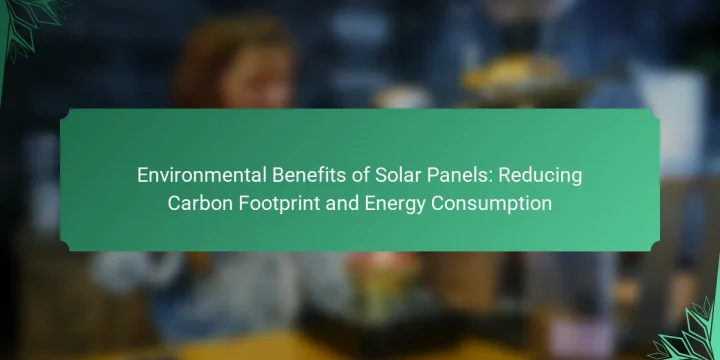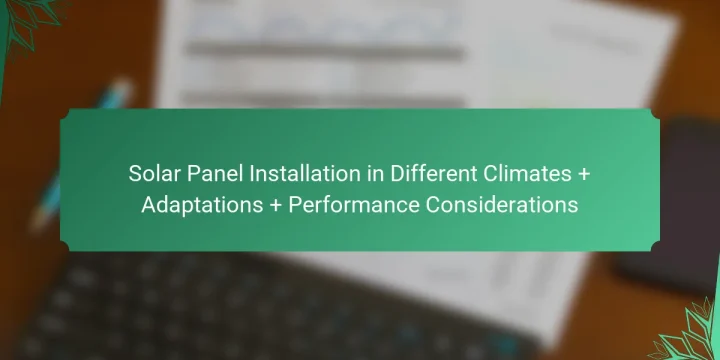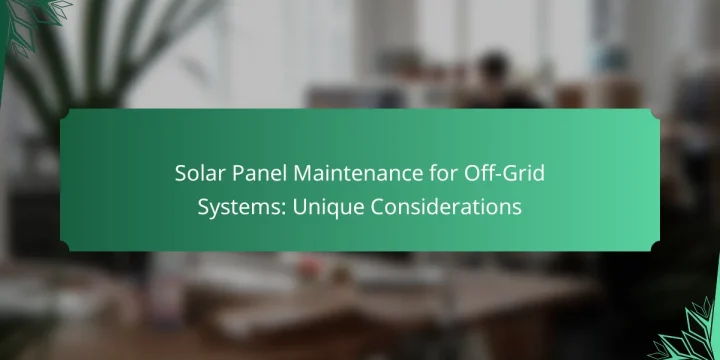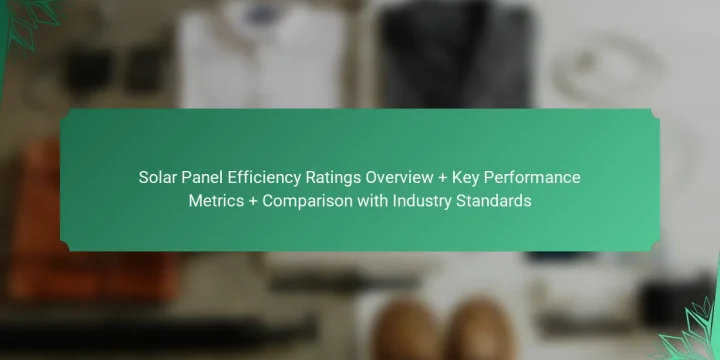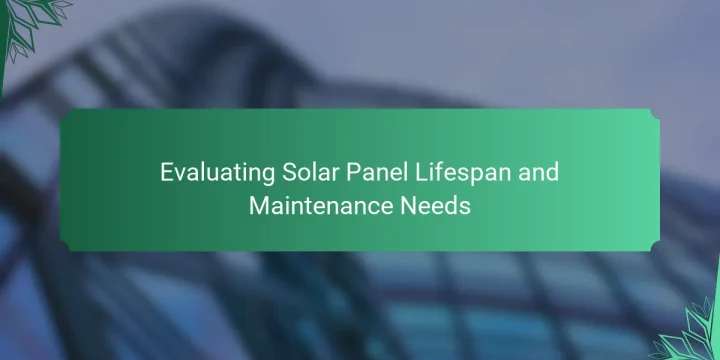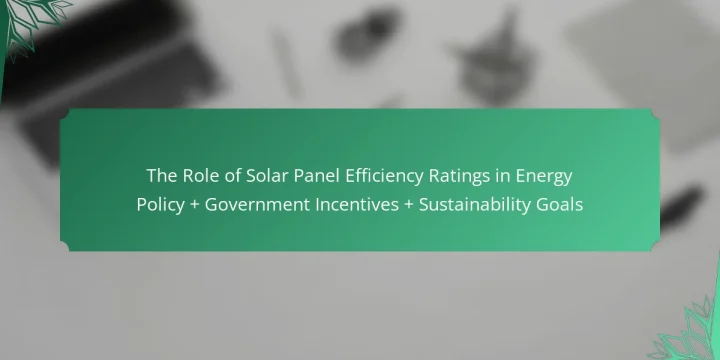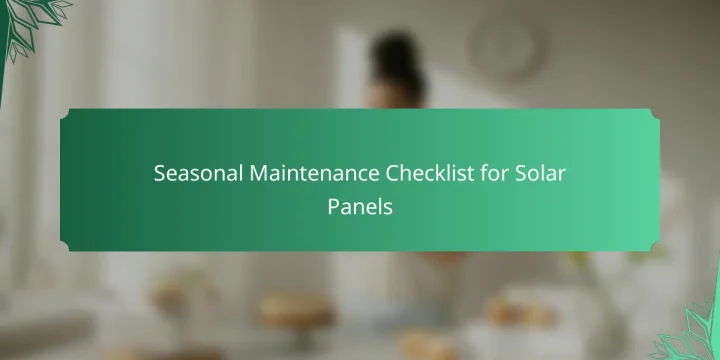
What is a Seasonal Maintenance Checklist for Solar Panels? A Seasonal Maintenance Checklist for Solar Panels is a structured list of tasks to ensure optimal performance. This checklist typically includes cleaning the solar panels to remove dirt and debris. Inspecting the mounting hardware for any signs of wear is also essential. Checking the inverter for proper functioning is crucial for energy conversion. Monitoring the performance metrics helps identify any drops in efficiency. Reviewing the surrounding landscape for shading issues is important as well. Lastly, scheduling professional inspections can provide a thorough assessment of the system. Regular maintenance can extend the lifespan of solar panels and enhance energy production. Why is seasonal maintenance important for solar panels? Seasonal maintenance is important for solar panels to ensure optimal performance and longevity. Regular…
